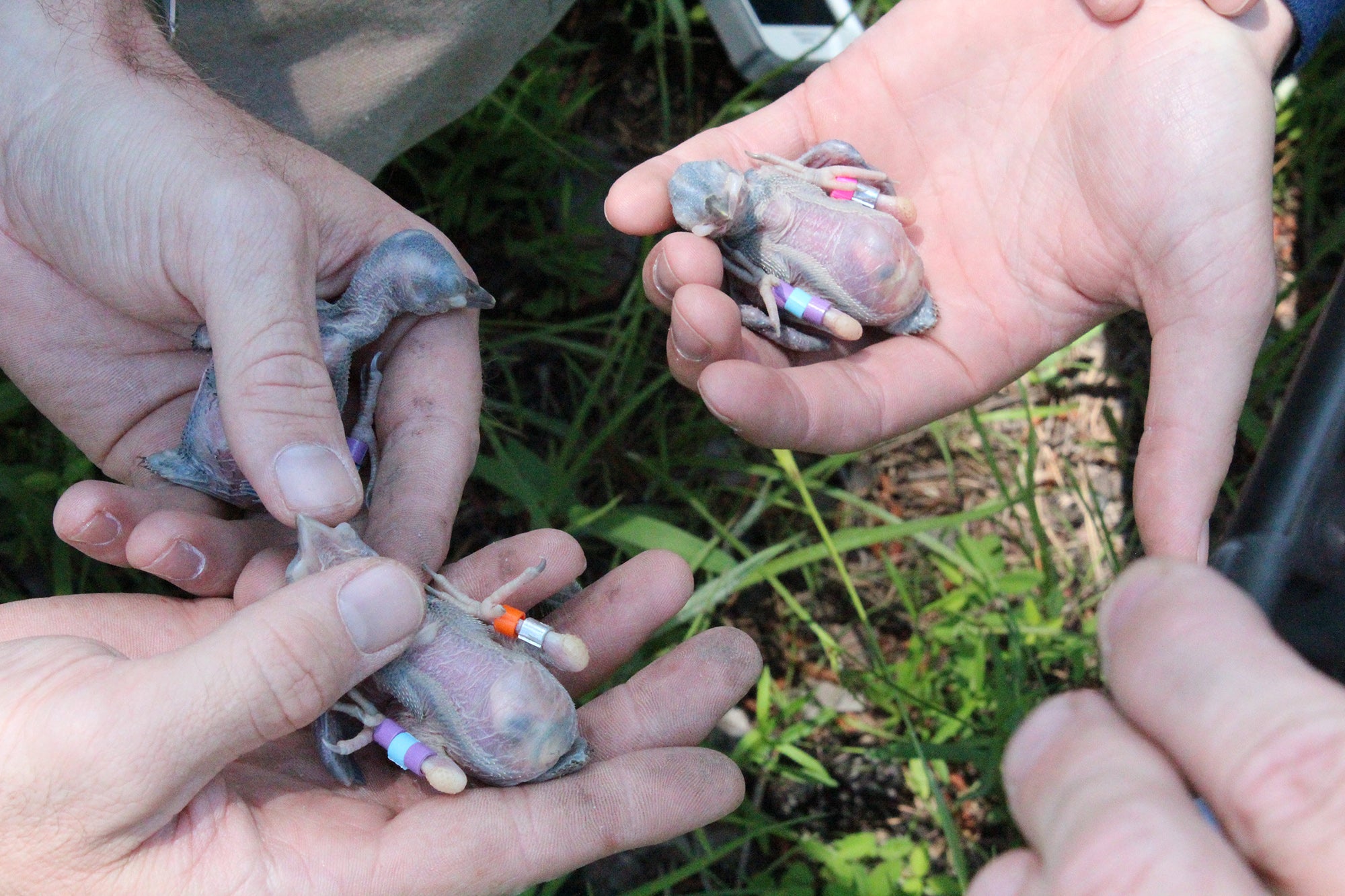An Endangered Species
Red-cockaded woodpecker (RCW) populations have declined by approximately 99 percent since European Settlement throughout their range due to loss of suitable old growth, open pine habitat. Their drastic decline in numbers led to RCWs being placed on the endangered species list in 1970, entitling it to federal protection under the Endangered Species Act (ESA). The majority of all active RCW clusters (group of cavity trees used by 2-4 birds) occur on public lands, but throughout the RCW range, an estimated 23 percent are located on private lands, making the conservation of RCWs on private lands an integral part of the species' recovery.
Historically, natural occurring forest fires helped to maintain open pine forests that RCWs thrived in. Over time fire suppression and habitat conversion across the landscape greatly reduced the amount of suitable habitat for RCWs. The introduction of prescribed fire as a management tool in southern pine forests has been key to restoring and maintaining RCW habitat, while also benefitting many other species including bobwhite quail and turkey.
What is a Safe Harbor Agreement?
To encourage landowners to protect habitat for Red-cockaded Woodpeckers (RCWs), Alabama Department of Conservation and Natural Resources, in cooperation with the U.S. Fish and Wildlife Service, implemented a Safe Harbor Program in the state in 2006. Safe Harbors are intended to foster cooperation of landowners, and benefit both endangered species and landowners simultaneously.
Under a Safe Harbor agreement, landowners agree to manage their land in ways that benefit RCW populations, but will not incur any new restrictions if RCW populations expand beyond the baseline level that exists on the property when the agreement is signed. The baseline level can even be zero if potential RCW habitat is present but no RCWs exist on the land. Potential habitat can include any pine forest managed with periodic fire for mature, open stands, including longleaf, loblolly, slash, and shortleaf pine.







